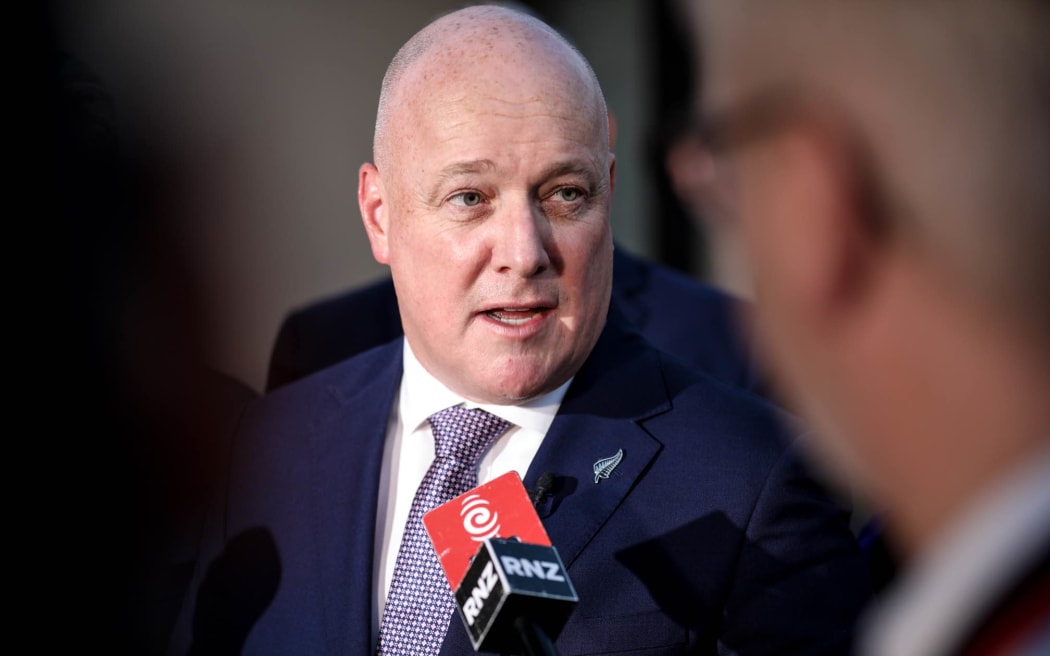
Prime Minister Christopher Luxon has spoken to six world leaders about the trade upheaval caused by the US President's tariffs. Photo: RNZ / Marika Khabazi
The Prime Minister has spoken to six world leaders about the trade upheaval caused by the US President's tariffs.
On Thursday, Christopher Luxon made calls to the prime ministers of Malaysia, Vietnam and Singapore, the president of the Philippines, and the head of the European Union.
Luxon also spoke to his Irish counterpart: "It was great to compare notes on the energy transition, digitising government, and our ambitions for education, too," Luxon said after the exchange.
He is expected to speak with other leaders in coming days, but it was not clear when he would reveal what exactly had been discussed or what the outcome was.
Earlier in the day, in a speech to the Wellington Chamber of Commerce - planned before Trump announced a pause on most tariffs - Luxon said he would be on the phone to world leaders, "comparing notes on world trade, and testing what we can do together to buttress the rules-based trading system".
He would also visit the UK later this month to meet Prime Minister Keir Starmer "to talk trade, security, and the geopolitical backdrop in Europe and the Indo-Pacific".
New Zealand would continue to work with like-minded countries to promote free trade as a path to prosperity and explore the role of the Comprehensive and Progressive Agreement for Trans-Pacific Partnership (CPTPP) in strengthening that vision, Luxon said.
The CPTPP is a free trade agreement involving 12 Indo-Pacific economies. The UK also joined in December last year.
"One possibility is that members of the CPTPP and the European Union work together to champion rules-based trade and make specific commitments on how that support plays out in practice," Luxon said.
"My vision is that includes action to prevent restrictions on exports and efforts to ensure any retaliation is consistent with existing rules.
"Collective action, and a collective commitment, by a large portion of the global economy would be a significant step towards preserving free trade flows and protecting supply chains."







